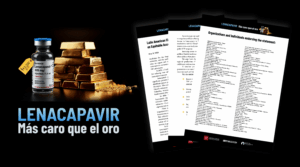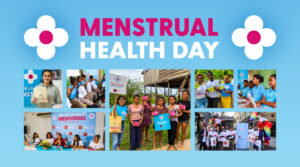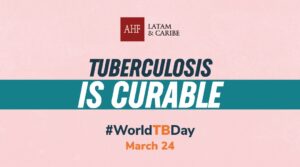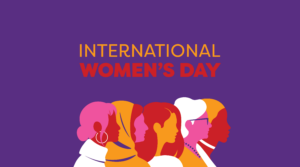A más de una década de existencia del tratamiento que previene el VIH, mejor conocido como Profilaxis Previa a la Exposición (PrEP), la Sociedad Española de Inmunología publicó nuevas recomendaciones para el uso clínico de esta terapia en esa nación.
Dicha estrategia, que consiste en un tratamiento antirretroviral que pueden tomar quienes no viven con VIH, pero se encuentran en constante exposición a él, ha sido muy estudiada en diferentes circunstancias para averiguar si sigue siendo segura y efectiva en distintos contextos y poblaciones.
Un antes y después
En 2010 se publicó el primer estudio científico que demostró que el tratamiento antirretroviral no sólo era efectivo para frenar al VIH en el organismo, sino que también era capaz de evitar que la infección se estableciera en una persona sin el virus que tomara de forma consistente el tratamiento, aun cuando tuviera contacto con el VIH por vía sexual.
Fue en 2012 cuando la Administración de Alimentos y Medicamentos (FDA, por sus siglas en inglés) dio la primera aprobación para proporcionar PrEP a grupos de personas en alto riesgo de contraer el VIH, concretamente hombres parejas de hombres que vivían con VIH y personas dedicadas al trabajo sexual.
El esquema antirretroviral usado para desarrollar la PrEP se mantuvo sin cambios durante mucho tiempo, y constaba de una pastilla diaria. En los años más recientes surgieron otras opciones, tanto de fármacos como de dosis, ya que actualmente existe una inyección que se aplica cada dos meses, aunque sólo ha sido aprobada en Estados Unidos y algunos países de Europa.
Nuevas reglas
A raíz de las investigaciones sobre PrEP que se han realizado en los últimos años, la Sociedad Española de Inmunología y Microbiología Clínica, a través de su Grupo de Estudio del Sida, actualizó sus recomendaciones sobre el uso del tratamiento. Así lo informó el sitio web del Grupo de Trabajo sobre Tratamientos del VIH (gTt-VIH).
Si bien las nuevas directrices, publicadas en marzo pasado, son aplicables sólo en el país ibérico, sirven como parámetro para considerar los cambios que puede haber en las guías de otros países.
En el documento, que no había sido actualizado desde 2016, se modificó el objetivo de las visitas de seguimiento. En general, quienes reciben PrEP realizan cuatro visitas de seguimiento al año, pero hasta ahora se utilizaban para entregarles medicamento suficiente para tres meses y para realizarles una prueba de detección del VIH (ya que la PrEP, aunque altamente efectiva, no es infalible).
Ahora las guías especifican que se deben tomar las visitas de seguimiento como una oportunidad de analizar las características de cada caso, y deben incluir:
- Consejería preventiva más allá de la PrEP
- Evaluación de posibles efectos adversos
- Pruebas para detectar otras infecciones de transmisión sexual (ITS)
- Detección de consumo de drogas
- Revisión del esquema de vacunación de la persona
Mayor población cubierta
En cuanto a la población que puede recibir la PrEP (que desde 2019 forma parte de los servicios del Sistema Nacional de Salud en España), las nuevas guías indican que el tratamiento ahora se podrá dar también a personas que usan drogas inyectadas y a hombres y mujeres cisgénero que se encuentran en riesgo de adquirir el VIH.
Los grupos a los que se dirigía principalmente este tratamiento se mantienen; éstos son:
- Hombres gays, bisexuales y otros hombres que tienen sexo con hombres
- Mujeres trans
- Mujeres trabajadoras sexuales
Asimismo, la edad mínima de 16 años, recién establecida en 2021, permanece sin cambio (antes sólo se entregaba la PrEP a personas de 18 años o más).
La actualización también incluyó las particularidades del chemsex, esto es, fiestas de intercambio sexual donde se utilizan ciertas drogas. Para las personas con estas prácticas, se recomienda una atención integral que evite juicios morales, discriminación o estigmatización por el uso de drogas, pero brindando herramientas de ayuda para quien quiera dejar el consumo o para reducir los daños de éste.
Otro tema muy importante que se aborda es la adherencia, que significa tomar el tratamiento en tiempo y forma, sin errores y sin interrumpirlo, pues esto es la clave para el éxito de la PrEP. Cabe decir que en España el único tipo de PrEP que se seguirá utilizando es el esquema de una pastilla diaria.
Sin duda, hay opciones muy efectivas para prevenir el VIH, pero la más barata, práctica y al alcance de la mano es el condón. Recuerda que en AHF América Latina y el Caribe los tenemos para ti. Además, hacemos pruebas de VIH gratis. Si quieres saber más, localiza nuestras oficinas cerca de ti, estamos en 11 países de la región.






